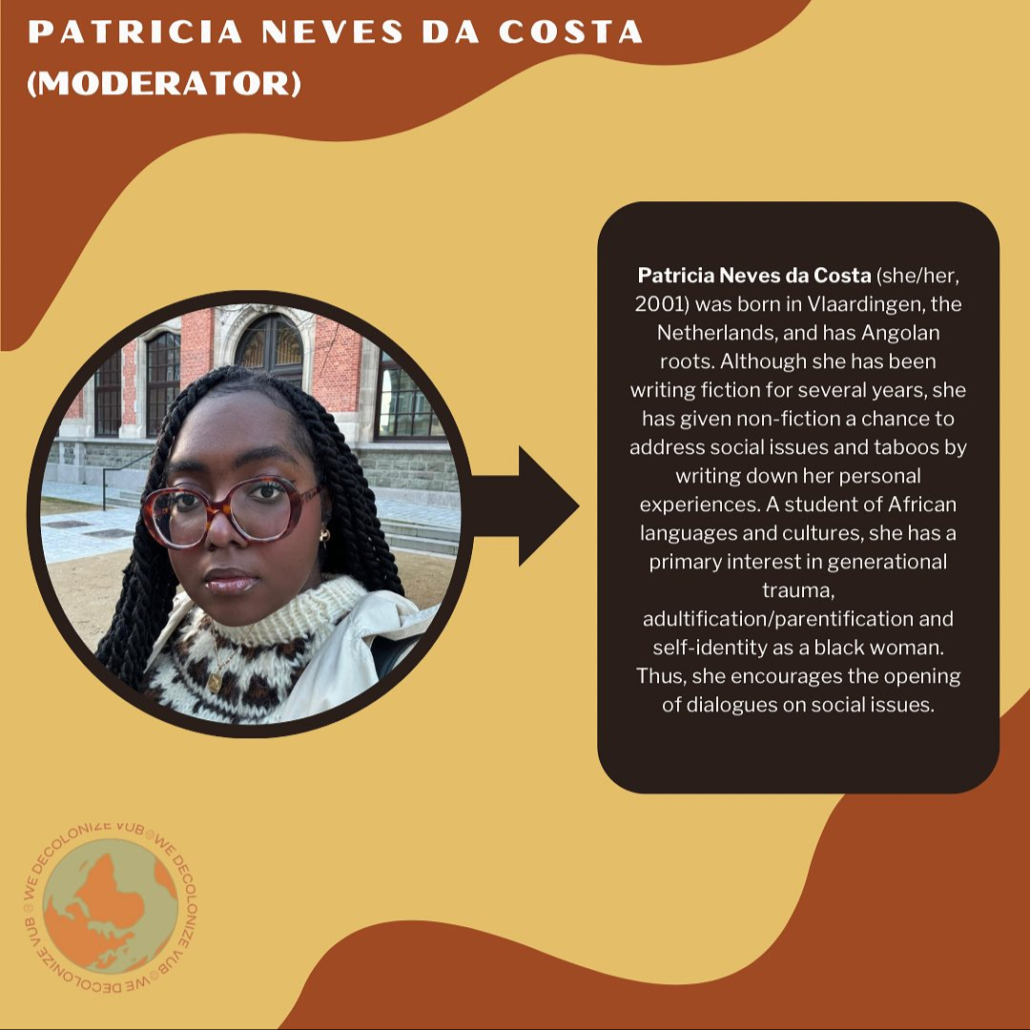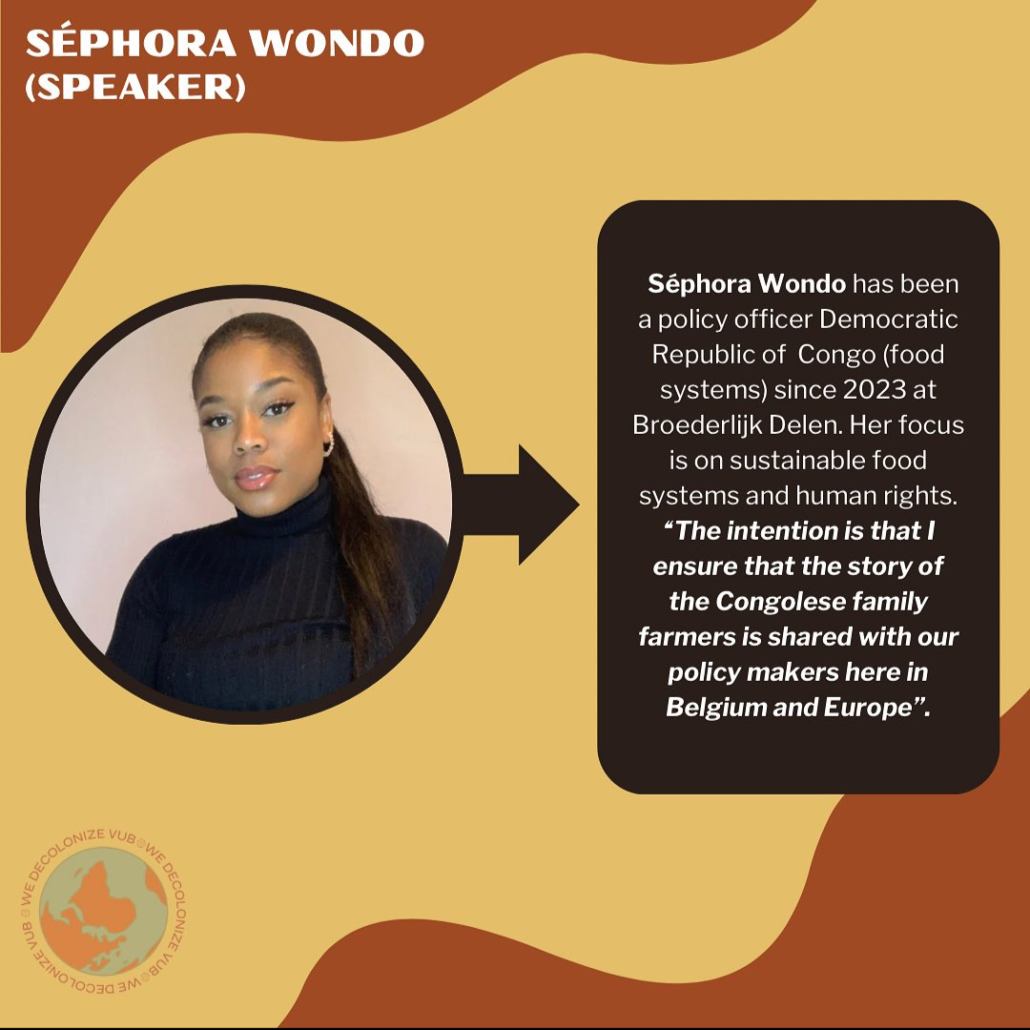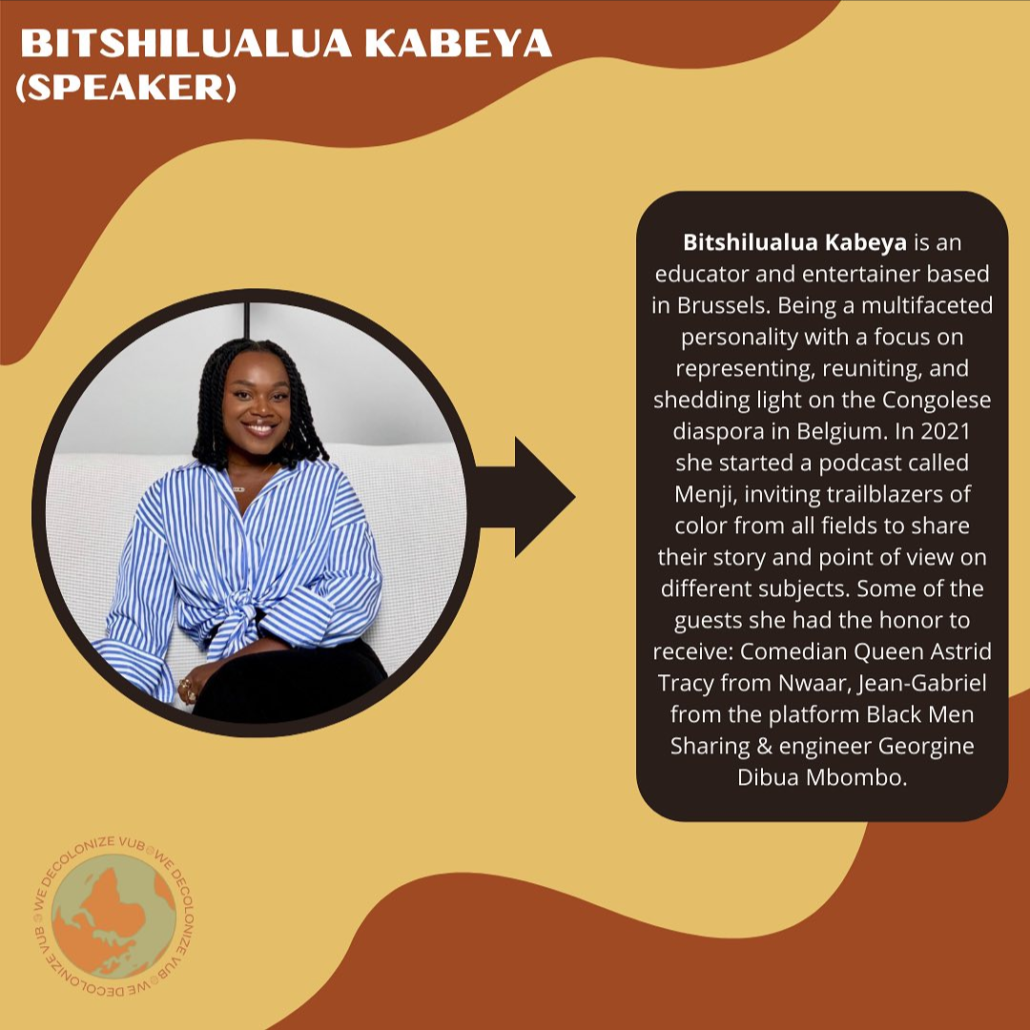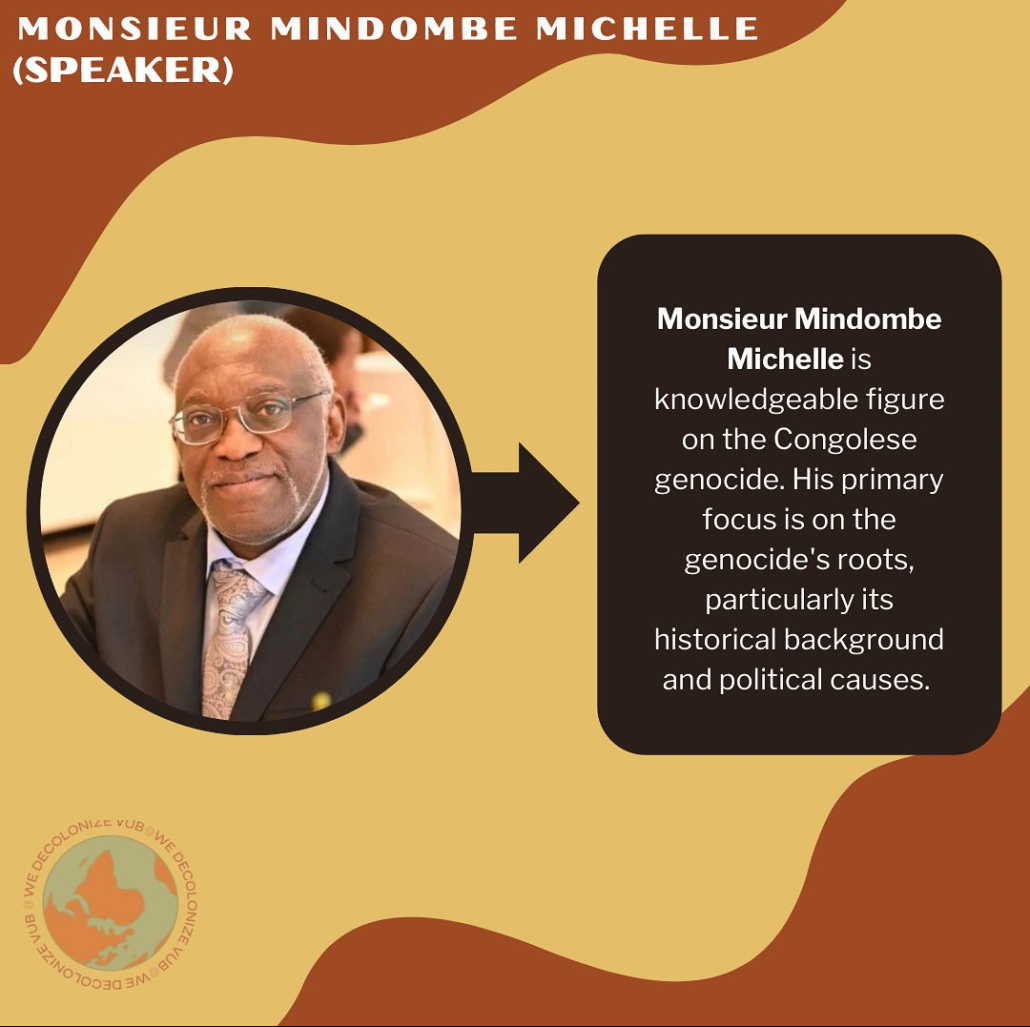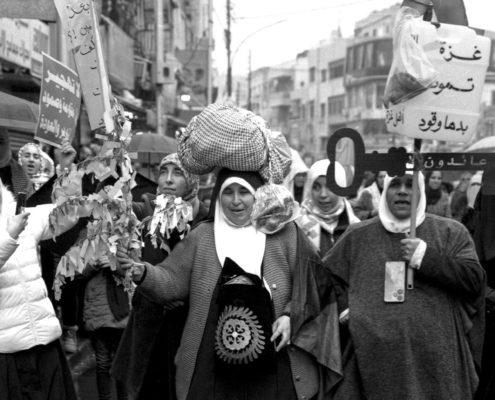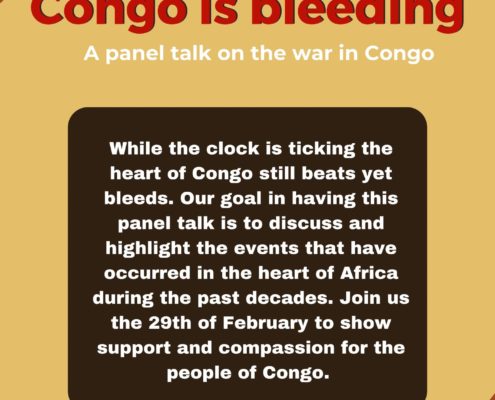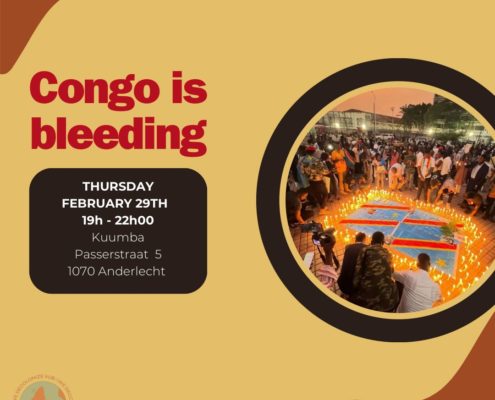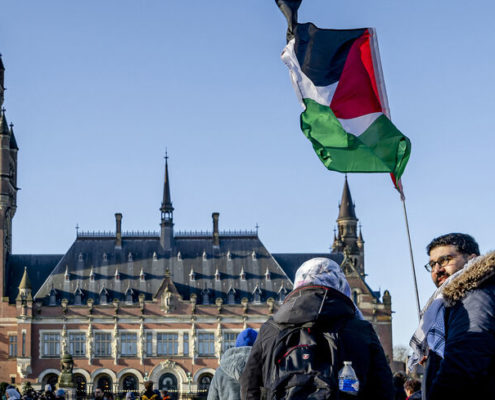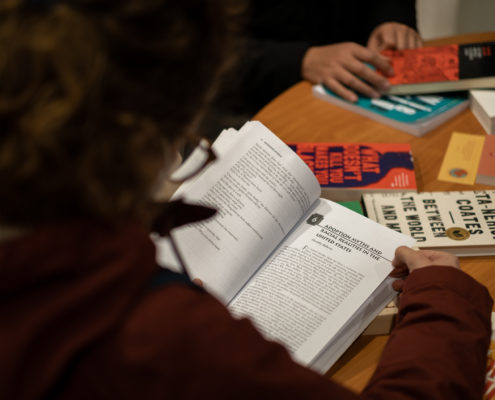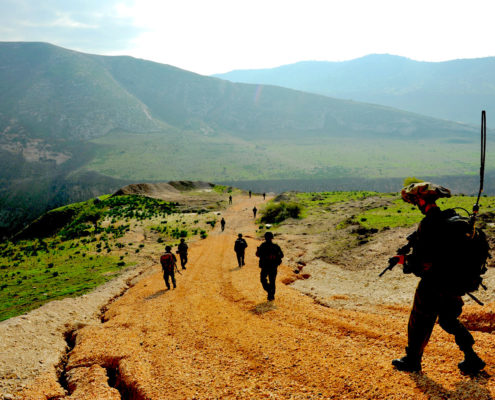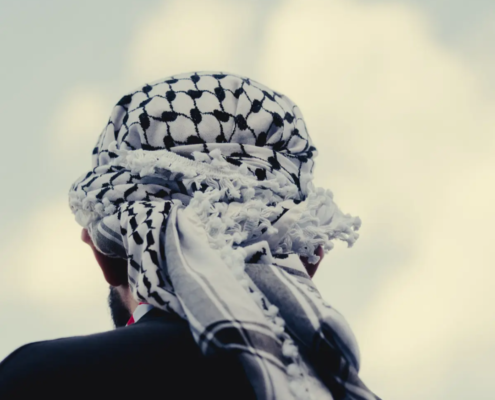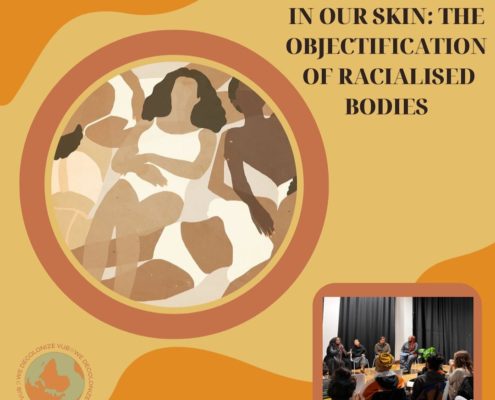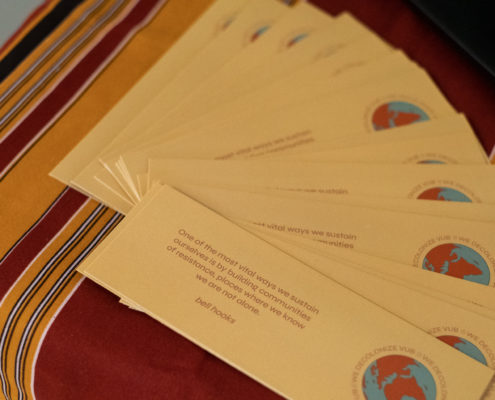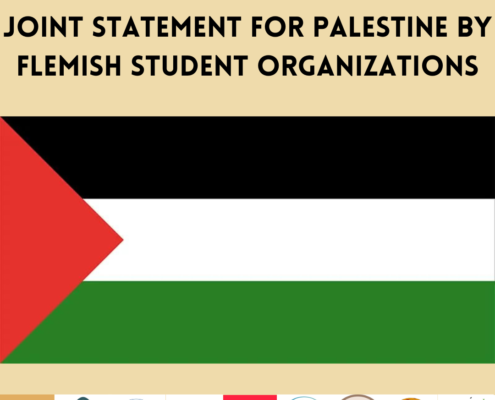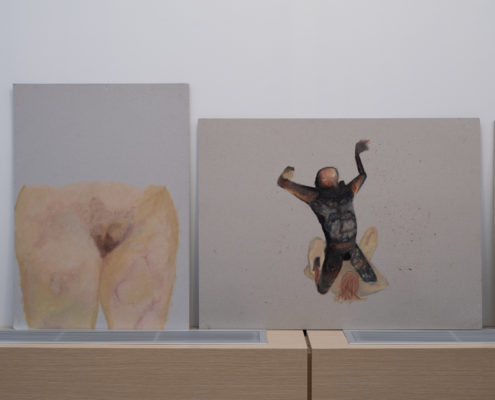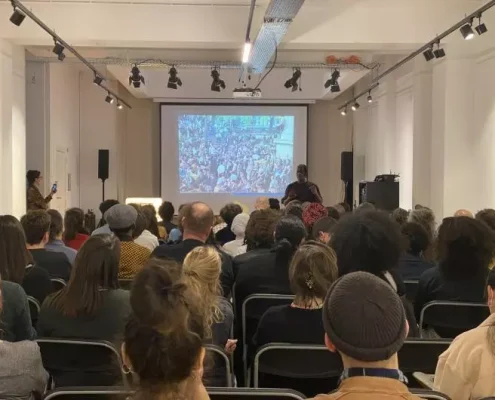‘Congo is bleeding’ event draws nearer
Get to know the panelists before the discussion and join our host Patricia Da Costa for an interview with BRUZZ radio
23.02.2024
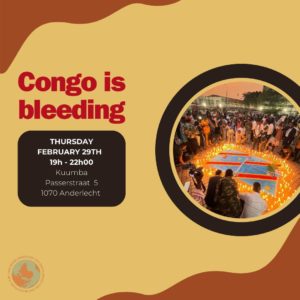
The genocide in Congo rages on. Since the beginning of the 90’s eastern Congo has been a region plagued by violence due to the mineral wealth of the territory. Approximately 70% of the world’s Cobalt supply is mined in east Congo, alongside huge amounts of copper and lithium. Cartellized terrorist groups, financed by western corporations and governments, maintain the instability of the region and the steady cheap supply of mined raw material. These minerals are widely used for electronics and particularly for batteries in the growing electric car industry, with an impending explosion in global demand and no limitation on violent extractionism the crisis only threatens to worsen. Vicious extractionism threatens the contuguity of local communities and encircles them with massive resource extraction projects, many are forced to take manual jobs in mines and in brutal conditions, effectively enslaving the population. Massive criminal extraction schemes have created a wound which only threatens to worsen without intervention, and the silence of the world speaks volumes. Join WeDecolonizeVUB in breaking this silence on the 29th of February at the Flemish African House for our ‘Congo is Bleeding’ event.
Get to know the panel
Patricia Neves da Costa (she/her, 2001) was born in Vlaardingen, the Netherlands, and has Angolan roots. Although she has been writing fiction for several years, she has given non-fiction a chance to address social issues and taboos by writing down her personal experiences. A student of African languages and cultures, she has a primary interest in generational trauma, adultification/parentification and self-identity as a black woman. Thus, she encourages the opening of dialogues on social issues.
Séphora Wondo has been a policy officer Democratic Republic of Congo (food systems) since 2023 at Broederlijk Delen. Her focus is on sustainable food systems and human rights.
“The intention is that I ensure that the story of the Congolese family farmers is shared with our policy makers here in Belgium and Europe”. – Séphora Wondo
Bitshilualua Kabeya is an educator and entertainer based in Brussels. Being a multifaceted personality with a focus on representing, reuniting, and shedding light on the Congolese diaspora in Belgium. In 2021 she started a podcast called Menji, inviting trailblazers of color from all fields to share their story and point of view on different subjects. Some of the guests she had the honor to receive: Comedian Queen Astrid Tracy from Nwaar, Jean-Gabriel from the platform Black Men Sharing & engineer Georgine Dibua Mbombo.
Monsieur Mindombe Michelle is a knowledgeable figure on the Congolese genocide. His primary focus is on the genocide’s roots, particularly its historical background and political causes.
BRUZZ radio interview with Patricia Da Costa
Leading up to the event, BRUZZ radio hosted an interview with Patricia Da Costa, the host of WDVUB’s panel next thursday. The interview discussed the contemporary characteristics of the crisis as well as exploring some of the broader contexts, Patricia also expanded on the event and its purpose. You can listen to this enlightening interview here, and read the English transcript below, to get cued in before attending our panel discussion.
Robbe Petitjean: Good morning Patricia da Costa, you’re a student at the UGent and part of wedecolonizevub. Next Thursday on the 29th, you guys hold a debate. What is the purpose?
Patricia Da Costa: The purpose is to come together. It will take the form of a panel talk, where our main goal is to inform people about what exactly is happening in East Congo because there is aswell a lot of fake news but also to explain the historical context because this could be complex but also to support the Congolese diaspora in Belgium and see what we can do here.
Robbe: Is it also the goal to reach them because it’s located in Kuumba the African house?
Patricia: It’s also the goal to reach them so we are hoping that people could feel supported.
Robbe: That conflict, I know it is very complex but can you briefly explain what is happening over there, is that possible?
Patricia: Yes of course, currently there is genocide going on in Congo. Since the beginning of the 90s in East-Congo, this because this location is rich with minerals mostly the mineral cobalt that gets used in smartphones, batteries en electric cars. It’s everywhere. Approximately 70% of the worlds Cobalt comes from East-Congo. So what is happening in Congo right now, is that the West is financing terrorist groups to destabilize Congo. So this cobalt could be took over for a cheaper price and easier can get smuggled outside the country. Because this cobalt is under authority of these terrorist groups do Congolese people have to cultivate these minerals manually, that makes them slaves in their own country.
Robbe: That cobalt is in the smartphones we use everyday, is everyone to blame?
Patricia: No because it’s very difficult to know which companies or even which countries support this genocide in Congo. This causes it to be very hard to boycot something.
Robbe: Yes, that indeed really looks very complex for me. Wedecolonizevub is going to give extra attention to it, how is the situation over there right now? A lot of people are on the run.
Patricia: Yes that is true, the situation over there is really bad. Until now more than 6 million people have died and there is totally not a lot of media coverage going towards the issue that causes to situation to be happening in silent.
Robbe: Why do you think there is not a lot of media coverage about the situation?
Patricia: I think there is little coverage about this because the whole problem is so complex and it has been going on for very long but it is also very difficult to say which companies have a role in this genocide and which one specifically can we boycott because we do not know which companies finance this genocide. I also think that in the media it gets seen less as a priority, maybe because it is from far away.
Robbe: Yes maybe because it feels like that, what do you think of important people such as a Romelu Lukaku posts about this?
Patricia: If an important person such as Romelu Lukaka posts about this then you know It is very urgent to talk about this. We cannot be silence anymore.
Robbe: And next Thursday that is going to happen, Wedecolonizevub is going to have a sort of debat, on the intercalary day in Kuumba the Flemish-African house. Are you yourself going to participate?
Patricia: Yes, I actually moderate the panel talk. I’m going in conversation with Kabeya and Sephora Wondo.
Robbe: How many people do you expect?
Patricia: We hope approximately to welcome 50 people but we are not sure yet.
Robbe: Perhaps this is a call, you can go to Kuumba the Flemish African house, if you wanna know more about it is between 19-22h, the intercalary day, there is going to be talked about the problems in Congo. It is maybe weird to say but I wish you good luck, Patricia.
Patricia: Thank you


